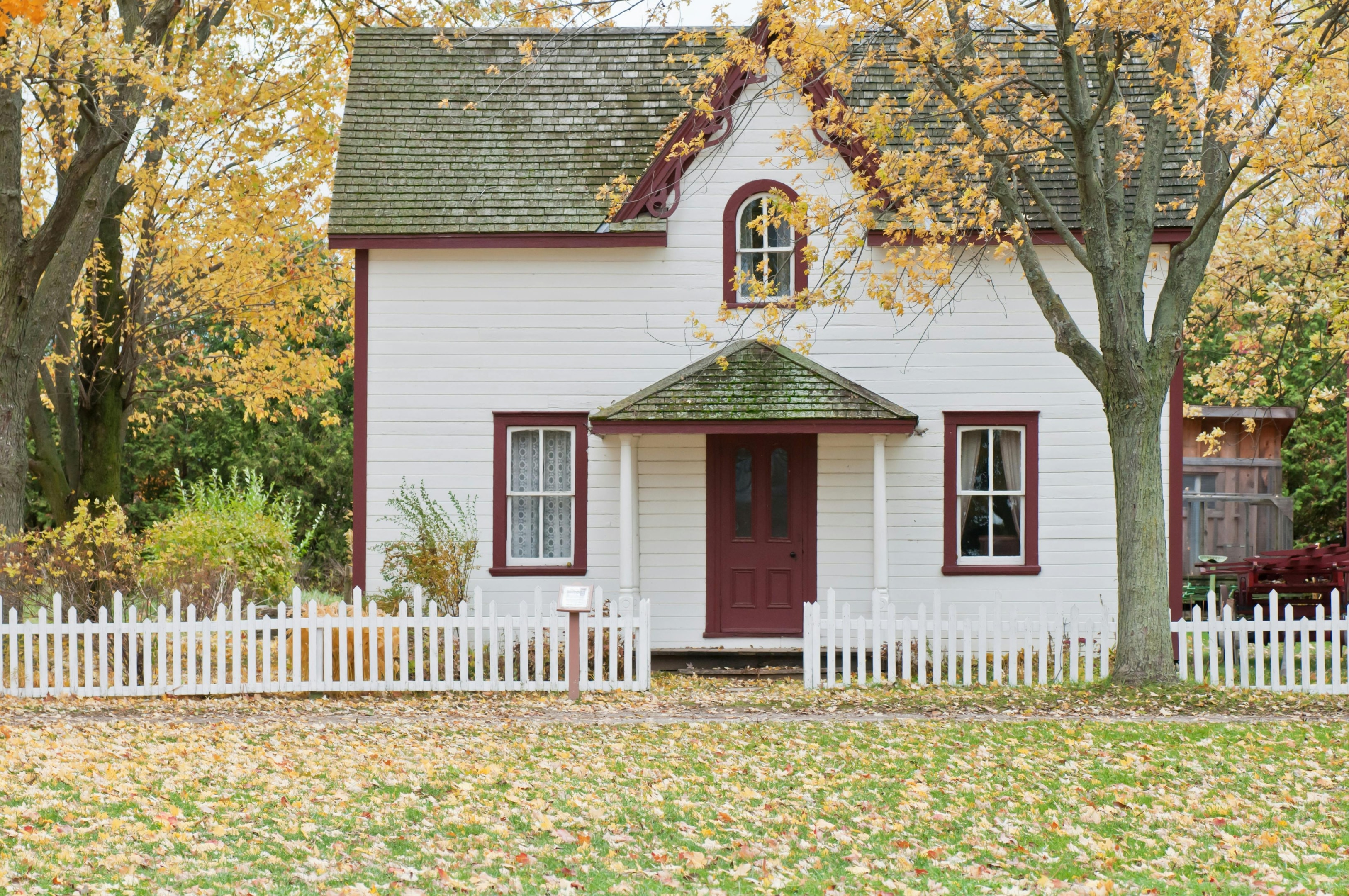Understanding What Happens to a House During Probate: A Clear Guide
When a homeowner dies, their house enters probate. So, what happens to a house during probate? The court assesses the will, ensures debts are paid, and distributes the assets. The house remains in the deceased's name until these steps are complete. This article walks you through each stage of managing a house in probate.
Key Takeaways
Probate is a court-supervised process for validating a will and distributing estate assets, which includes specific steps for managing real estate during this period.
The executor is responsible for maintaining the house, settling debts, and managing property-related tasks such as notifications and inventory before asset distribution.
Property ownership transfer during probate requires legal steps, including court approval, and can involve either selling the house or transferring it directly to heirs.
Understanding Probate and Its Impact on Real Estate
Probate is a legal process overseen by the court to validate a deceased person's will and distribute their estate assets, including real estate, according to their wishes. This procedure ensures that the deceased person's debts and taxes are settled, and the remaining assets are distributed to the rightful beneficiaries.The probate process typically involves filing a petition, determining the validity of the will, and overseeing the property distribution.
During probate, real estate ownership remains under the deceased's name, meaning that the probate property cannot be sold or transferred until the probate court determines the rightful ownership and whether the property should be sold or transferred. This can have significant implications for the management and disposition of estate property, impacting decisions such as whether to maintain, sell, or inhabit the house during probate.
Anyone dealing with estate property must understand probate and its impact. This knowledge aids in making informed decisions that follow probate law and respect the deceased's wishes. For instance, the probate court's involvement ensures proper property distribution, preventing potential legal disputes among heirs. This foundation is essential for the next steps in managing a house during probate.

Initial Steps in Managing a House During Probate
Immediately after the homeowner's death, securing the house to prevent unauthorized access or damage is essential. Keeping the property untouched ensures its safety and integrity. Notices regarding the probate must be sent to all involved parties, including beneficiaries and creditors, to inform them about the proceedings and any claims against the estate.
Heirs or beneficiaries can generally live in the house during probate if certain conditions are met, such as adhering to the estate's rules and any stipulations in the will. Typically, residents can stay until the probate process is complete. Clarifying these conditions with an experienced probate attorney helps avoid potential legal issues.
Following these initial steps ensures smooth management of the estate property in accordance with probate law.
Role of the Executor in Handling the House
The executor plays a pivotal role in managing the house during probate. They are responsible for safeguarding the estate's interests, which includes notifying relevant parties about the decedent's passing and ensuring the property is protected from damage or depreciation. This fiduciary duty means the executor must act in the best interests of the estate and its beneficiaries.
One of the executor's key tasks is to take inventory and appraise the estate's assets, including the house. This may involve consulting professionals like appraisers to accurately value the property. Additionally, the executor must ensure that all debts and taxes are settled before distributing the remaining assets to the beneficiaries. This includes maintaining accurate records of all actions taken regarding the estate for accountability purposes.
Maintenance of the house during probate is another critical responsibility of the executor. This includes paying property taxes and insurance, making mortgage payments, and ensuring routine maintenance. If the house suffers any damage, the executor must raise funds from the estate to cover repairs. By fulfilling these duties, the executor ensures that the estate property is preserved and the probate process proceeds smoothly.

Transfer of Property Ownership During Probate
Transferring property ownership during probate involves several legal steps. Here's a breakdown of the process:
Ownership of the house must be moved from the deceased's name, as it cannot remain under their name posthumously.
This requires filing a petition and obtaining court approvals.
An inventory and appraisal of all assets, including real estate, must be compiled and presented to the court to transfer property.
If the deceased person's estate left a valid will, the probate court will validate it, and the property will typically pass to the named beneficiaries. Without a will, property distribution follows state intestacy laws, usually conveying the house to surviving spouses, children, or next of kin. Heirs may need to execute a new deed to officially transfer ownership.
Before distributing assets from probate sales, all estate debts must be satisfied. The probate court may decide to sell the property to settle these debts or legal fees. An experienced probate attorney can assist executors and beneficiaries in navigating these legal requirements, ensuring all debts and taxes are settled before asset distribution.
Options for the House: Sale vs. Inheritance
When it comes to dealing with a house during probate, there are two primary options: selling the property or transferring it to heirs. Each option has its own set of considerations and processes, which will be detailed in the following subsections.
Understanding these options helps in making informed decisions that best suit the estate and the beneficiaries' needs.
Selling the House Through Probate
Selling the house through a probate sale involves critical steps. The executor can hire a real estate agent experienced in probate sales due to their knowledge and vendor relationships. These sales often require court approval before completion, adding an additional layer of oversight. Another option is to sell directly to an investor, some of who specialize in probate properties, meaning they have extensive knowledge on the process. To learn more as an investor, read The Essential Guide to Investing in Probate Real Estate.
The property is typically sold ‘as-is,' meaning no repairs are made before the sale. This can benefit estates lacking funds or time for renovations. The court must grant the personal representative expanded powers to sell the personal property, ensuring the sale aligns with legal requirements and the estate's best interests.
Hiring professionals to navigate this process is recommended to avoid potential violations and ensure a smooth sale.
If you're an heir or executor interested in learning more about selling a probate property, read The Essential Guide: How to Sell Probate Property Quickly and Efficiently.

Inheriting the House
When heirs decide to keep the house, a new deed must be executed to transfer the property into their names. If there is a surviving spouse, they typically receive the house as the sole beneficiary. If multiple family members are involved, they may need to buy out the other heirs' shares to maintain sole ownership.
When heirs cannot agree on a fair market price, selling the property might be the most feasible option, ensuring all parties receive their fair share of the estate assets. Understanding state laws and consulting with a probate attorney can help navigate these situations smoothly.
Living in the House During Probate
Immediate family members who were living in the house before probate can usually continue residing there during the process, under certain conditions. Beneficiaries must follow the estate's general rules to stay in the house, and significant renovations are typically not allowed.
The executor manages the property and can impose restrictions on occupancy. If the will stipulates that the property must be sold, occupants may need to vacate. Those living in the house must continue paying utilities and property taxes to avoid additional burdens on the estate.
Consulting a probate attorney ensures all legal requirements are met while living in the house during probate.

Maintaining the House and Covering Expenses
Maintaining the house during probate involves addressing any outstanding debts and bills associated with the estate. The executor must keep the property in good condition to prevent deterioration, which could affect the estate's overall value. This includes paying utilities, property taxes, and insurance.
If someone is living in the house, they may be required to cover these ongoing costs, as the executor often delegates this responsibility. Sometimes, obtaining court approval may be necessary if the executor intends to rent out the property during probate.
Addressing these financial and maintenance responsibilities preserves the estate property during the probate process.
Potential Complications and How to Avoid Them
Probate can be complex, with several factors complicating property ownership. Conflicting family interests, ambiguous wills, and creditor claims are common challenges executors face. These complications can increase the process's complexity and potentially lead to disputes.
To avoid these issues, homeowners can protect their property rights by creating a comprehensive estate plan, a valid will, or a trust. Researching state probate rules and exploring ways to structure an estate can help avoid a costly probate process.
Consulting a probate attorney can help resolve disputes and ensure the legal process of the probate process proceeds smoothly.

Legal Assistance: The Role of a Probate Attorney
Hiring a probate attorney is crucial for navigating the legal complexities of the probate process. An experienced attorney can guide the executor through necessary steps, ensuring all legal procedures are followed correctly. This helps avoid costly mistakes during the distribution phase and protects the estate's interests. To find a reliable probate attorney in your state, see this list from Justia.
Before selling a house in probate, consulting a probate attorney ensures the sale complies with legal requirements and the executor's actions are in the best interests of the beneficiaries. If the executor is uncertain about any aspect of the probate process, seeking legal advice is highly recommended.
Special Cases: Joint Tenancy and Transfer on Death Deeds
Joint tenancy and transfer on death deeds are special cases that can bypass the probate process. Jointly owned properties usually pass directly to the surviving owner, avoiding probate altogether. This can simplify the property transfer but requires all owners to agree on actions regarding the property.
A transfer on death deed enables property owners to designate beneficiaries who will directly inherit their property upon the owner's death, thereby bypassing the probate process. However, these deeds are not available in every state, and the rules governing them can vary significantly by jurisdiction.
Consulting with a probate attorney ensures these special cases are handled correctly and all legal requirements are met.
Conclusion
Understanding the probate process and its impact on real estate is crucial for managing a house during probate effectively. From securing the property and notifying relevant parties to handling the responsibilities of the executor and navigating property transfer, each step is essential in ensuring a smooth probate process.
For investors and real estate agents, it's important to have an understanding of what happens to houses going through the process of probate so that you are able to make informed decisions. For further information about investing, read The Essential Guide to Investing in Probate Real Estate.
Whether you decide to sell the house through probate or inherit it, consulting with a probate attorney and creating a comprehensive estate plan can help avoid complications and protect your interests. Taking proactive steps in estate planning can provide peace of mind and ensure that your wishes are honored after your passing.
Frequently Asked Questions
What is the role of the executor in handling a house during probate?
The executor plays a crucial role in managing the estate during probate, which includes protecting the property, notifying relevant parties, settling debts, and ensuring proper maintenance. This responsibility is vital for maintaining the value of the house throughout the probate process.
Can family members live in the house during probate?
Immediate family members are typically allowed to live in the house during probate, as long as they adhere to the estate's rules and conditions.
What happens if heirs cannot agree on what to do with the house?
If heirs cannot agree on what to do with the house, the most common resolution is to sell the property and distribute the proceeds accordingly. This ensures a fair outcome for all parties involved.
How does a transfer on death deed work?
A transfer on death deed enables property owners to specify beneficiaries who will directly inherit the property upon the owner's passing, thereby avoiding the probate process. This simplifies the transfer of ownership and ensures a smoother transition for the beneficiaries.
Why is it important to hire a probate attorney?
It is crucial to hire a probate attorney to effectively manage the legal intricacies of probate, preventing costly errors and ensuring adherence to all relevant procedures. Their expertise can significantly streamline the process and protect your interests.